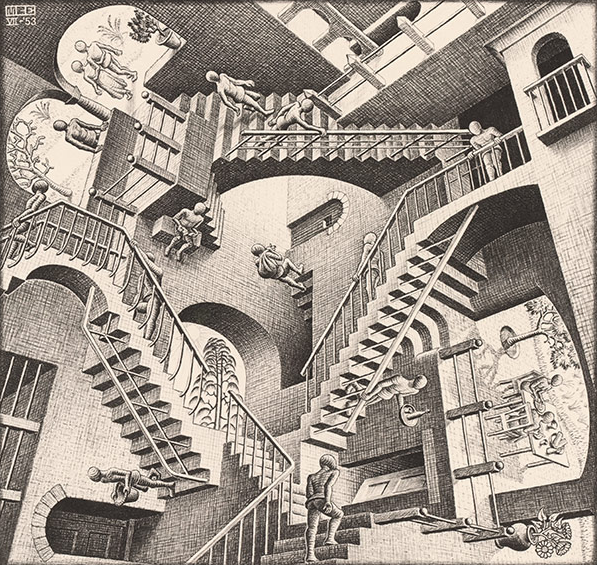Picasso Creative Writing Method: To execute, communicate and share our "CREATIVE MISSION" as set out below - *Comprehensive Creative Creativity with curated articles, posts, blogs and studies from around the world that support or relate to this rich inter-disciplinary approach to sustainable life-long creations and imagination.
Every Little bit Helps
Creative Mission
Search This Blog
Friday, 28 September 2018
3 Common #Goal Setting Mistakes
Thursday, 27 September 2018
#CNN Keeping your brain fit, by a USA #Memory Champion

Diet: I think, therefore I am ... what I eat
Physical training: No pain, no gain -- to your brain
Social interaction: Hanging out with the Joneses
Brain training: All aboard the brain train

Wednesday, 26 September 2018
The Most #Inspiring Blog Ever: "Quotes By Highly #Successful People "
"FOR MOTIVATION AND INSPIRATION"

Don’t be afraid to change so you can have success.
- “Change before you have to” — Jack Welch
- “Restlessness is discontent and discontent is the first necessity of progress. Show me a thoroughly satisfied man and I will show you a failure.” — Thomas Edison
- “We can’t solve problems by using the same kind of thinking we used when we created them.” — Albert Einstein
- “To improve is to change; to be perfect is to change often.” — Winston Churchill
- “It is not the strongest of the species that survive, nor the most intelligent, but the one most responsive to change.” — Charles Darwin
Education and Personal Development will lead to success.
- “An investment in knowledge pays the best interest.” — Benjamin Franklin
- “You have brains in your head. You have feet in your shoes. You can steer yourself, any direction you choose.” — Dr. Seuss
- “Without continual growth and progress, such words as improvement, achievement, and success have no meaning.” — Benjamin Franklin
- “Education is the most powerful weapon which you can use to change the world.” — Nelson Mandela
Winning is a must for success.
- “Failure is just the opportunity to begin again, this time more intelligently.” — Henry Ford
- “Winning isn’t everything, but wanting to win is.” — Vince Lombardi
- “Yesterday’s home runs don’t win today’s games.” — Babe Ruth
- “The problem with the rat race is that even if you win, you’re still a rat.” — Lily Tomlin
Thinking big and about your future.
- “Live like no else today, so you can live like no else tomorrow.” — Dave Ramsey
- “I just want to put a ding in the universe” — Steve Jobs
- “Where you start is not as important as where you finish” — Zig Ziglar
- “Our only limitations are those we set up in our own minds” — Napoleon Hill
Former presidents words of wisdom. 
- “We cant help everyone, but everyone can help someone” — Ronald Reagan
- “Efforts and courage are not enough without purpose and direction.” — John F Kennedy
- “The best thing about the future is that it comes ones day at a time.” — Abraham Lincoln
- “A pessimist is one who makes difficulties of his opportunities and an optimist is one who makes opportunities of his difficulties.” — Harry S Truman
- “It is better to offer no excuse than a bad one” — George Washington
Work hard. Discipline always leads to success.
- “A man must be big enough to admit his mistakes, smart enough to profit from them, and strong enough to correct them.” — John Maxwell
- “People who are unable to motivate themselves must be content with mediocrity, no matter how impressive their other talents.”— Andrew Carnegie
- “Discipline is the bridge between goals and accomplishment” — Jim Rohn
- “There’s no shortage of remarkable ideas, what’s missing is the will to execute them.” — Seth Godin
- “I’ve only had two rules: Do all you can and do it the best you can. It’s the only way you ever get that feeling of accomplishing something.” — Colonel Harland Sanders
- “If you work just for money, you’ll never make it, but if you love what you’re doing and you always put the customer first, success will be yours.” — Ray Kroc
Faith, attitude, and living a life of success.

- “Do not be anxious about tomorrow, for tomorrow will be anxious for itself. Let the day’s own trouble be sufficient for the day.” — Jesus
- “Business opportunities are like buses, there’s always another one coming.” — Richard Branson
- “Faith is taking the first step even when you don’t see the whole staircase.” — Martin Luther King Jr.
- “Happiness doesn’t depend on any external conditions, it is governed by our mental attitude.” — Dale Carnegie
Tuesday, 25 September 2018
Montague #Semantics
Montague semantics is a theory of natural language semantics and of its relation with syntax. It was originally developed by the logician Richard Montague (1930–1971) and subsequently modified and extended by linguists, philosophers, and logicians. The most important features of the theory are its use of model theoretic semantics which is nowadays commonly used for the semantics of logical languages and its adherence to the principle of compositionality—that is, the meaning of the whole is a function of the meanings of its parts and their mode of syntactic combination. This entry presents the origins of Montague Semantics, summarizes important aspects of the classical theory, and sketches more recent developments. We conclude with a small example, which illustrates some modern features.
- 1. Introduction
- 2. Components of Montague Semantics
- 3. Philosophical Aspects
- 4. Concluding Remarks
- Bibliography
- Academic Tools
- Other Internet Resources
- Related Entries
1. Introduction
1.1 Background
Montague semantics is the approach to the semantics of natural language introduced by Richard Montague in the 1970s. He described the aim of his enterprise as follows:The basic aim of semantics is to characterize the notion of a true sentence (under a given interpretation) and of entailment (Montague 1970c, 223 fn).The salient points of Montague's approach are a model theoretic semantics, a systematic relation between syntax and semantics, and a fully explicit description of a fragment of natural language. His approach constituted a revolution: after the Chomskyan revolution that brought mathematical methods into syntax, now such methods were introduced in semantics.
Montague's approach became influential, as many authors began to work in his framework and conferences were devoted to ‘Montague grammar’. Later on, certain aspects of his approach were adapted or changed, became generally accepted or were entirely abandoned. Nowadays not many authors would describe their own work as ‘Montague semantics’ given the many differences that have taken shape in semantics since Montague's own work, but his ideas have left important traces, and changed the semantic landscape forever. In our presentation of Montague semantics the focus will be on these developments.
Richard Montague was a mathematical logician who had specialized in set theory and modal logic. His views on natural language must be understood with his mathematical background in mind. Montague held the view that natural language was a formal language very much in the same sense as predicate logic was a formal language. As such, in Montague's view, the study of natural language belonged to mathematics, and not to psychology (Thomason 1974, 2). Montague formulated his views:
There is in my opinion no important theoretical difference between natural languages and the artificial languages of logicians; indeed I consider it possible to comprehend the syntax and semantics of both kinds of languages with a single natural and mathematically precise theory. (Montague 1970c, 222)
Sometimes only the first part of the quote is recalled, and that might raise the question whether he did not notice the great differences: for instance that natural languages develop without an a priori set of rules whereas artificial languages have an explicit syntax and are designed for a special purpose. But the quote as a whole expresses clearly what Montague meant by ‘no important theoretical difference’; the ‘single natural and mathematically precise theory’ which he aimed at, is presented in his paper ‘Universal Grammar’ (Montague 1970c). He became most well-known after the appearance of Montague 1973, in which the theory is applied to some phenomena which were discussed intensively in the philosophical literature of those days.
Montague's interest in the field arose while teaching introductory logic courses. Standard in such courses are exercises in which one is asked to translate natural language sentences into logic. To answer such exercises required a bilingual individual, understanding both the natural language and the logic. Montague provided, for the first time in history, a mechanical method to obtain these logical translations. About this, Montague said:
It should be emphasized that this is not a matter of vague intuition, as in elementary logic courses, but an assertion to which we have assigned exact significance. (Montague 1973, 266)
We next describe the basic ideas of Montague semantics. Section 2 presents several components of Montague semantics in more detail. Section 3 includes a discussion of philosophically interesting aspects, and Section 4 provides a detailed example and further reading.
1.2 Basic Aspects
To implement his objective, Montague applied the method which is standard for logical languages: model theoretic semantics. This means that, using constructions from set theory, a model is defined, and that natural language expressions are interpreted as elements (or sets, or functions) in this universe. Such a model should not be conceived of as a model of reality. On the one hand the model gives more than reality: natural language does not only speak about past, present and future of the real world, but also about situations that might be the case, or are imaginary, or cannot be the case at all. On the other hand, however, the model offers less: it merely specifies reality as conceived by language. An example: we speak about mass nouns such as water as if every part of water is water again, so as if it has no minimal parts, which physically is not correct. For more information on natural language metaphysics, see Bach 1986b.Montague semantics is not interested in a particular situation (e.g. the real world) but in semantical properties of language. When formalizing such properties, reference to a class of models has to be made, and therefore the interpretation of a language will be defined with respect to a set of (suitable) models. For example, in the introduction we mentioned that the characterization of entailment was a basic goal of semantics. That notion is defined as follows. Sentence A entails sentence B if in all models in which the interpretation of A is true, also the interpretation of B is true. Likewise a tautology is true in all models, and a contradiction is true in no model.
An essential feature of Montague semantics is the systematic relation between syntax and semantics. This relation is described by the Principle of Compositionality which reads, in a formulation that is standard nowadays:
The meaning of a compound expression is a function of the meanings of its parts and of the way they are syntactically combined. (Partee 1984, 281)
An example. Suppose that the meaning of walk, or sing is (for each model in the class) defined as the set of individuals who share respectively the property of walking or the property of singing. By appealing to the principle of compositionality, if there is a rule that combines these two expressions to the verb phrase walk and sing, there must be a corresponding rule that determines the meaning of that verb phrase. In this case, the resulting meaning will be the intersection of the two sets. Consequently, in all models the meaning of walk and sing is a subset of the meaning of walk. Furthermore we have a rule that combines the noun phrase John with a verb phrase. The resulting sentence John walks and sings means that John is an element of the set denoted by the verb phrase. Note that in any model in which John is element of the intersection of walkers and singers, he is an element of the set of walkers. So John walks and sings entails John walks.
An important consequence of the principle of compositionality is that all the parts which play a role in the syntactic composition of a sentence, must also have a meaning. And furthermore, each syntactic rule must be accompanied by a semantic rule which says how the meaning of the compound is obtained. Thus the meaning of an expression is determined by the way in which the expression is formed, and as such the derivational history plays a role in determining the meaning. For further discussion, see Section 2.5.
The formulation of the aim of Montague semantics mentioned in the introduction (‘to characterize truth and entailment of sentences’) suggests that the method is restricted to declarative sentences. But this is need not be the case. In Montague 1973 (248 fn) we already find suggestions for how to deal with imperatives and questions. Hamblin (1973) and Karttunen (1977) have given a semantics for questions by considering them with a meaning that is based upon sentences (viz. sets of propositions). Groenendijk and Stokhof (1989) consider questions as expressions with meanings of their own nature (namely partitions).
Since Montague only considered sentences in isolation, certain commentators pointed out that the sentence boundary was a serious limitation for the approach. But what about discourse? An obvious requirement is that the sentences from a discourse are interpreted one by one. How then to treat co-referentiality of anaphora over sentence boundaries? The solution which was proposed first, was Discourse Representation Theory (Kamp 1981). On the one hand that was an offspring of Montague's approach because it used model theoretic semantics, on the other hand it was a deviation because (discourse) representations were an essential ingredient. Nowadays there are several reformulations of DRT that fit into Montague's framework (see van Eijck and Kamp 1997). A later solution was based upon a change of the logic; dynamic Montague semantics was developed and that gave a procedure for binding free variables in logic which has an effect on subsequent formulas (Groenendijk and Stokhof 1991). Hence the sentence boundary is not a fundamental obstacle for Montague semantics.
Top Monthly Posts
-
Neurofeedback is effectively used to treat a wide variety of symptoms. In my previous blogs in this series on Neurofeedback , I ex...
-
A logical fallacy is an error in reasoning or a false assumption that might sound impressive but proves absolutely nothing. Someti...
-
READ AND WATCH EVERY MORNING "FOR MOTIVATION AND INSPIRATION" It has been said, if it has been said well, why say it ...
-
4 Strategies Designed to Drive Metacognitive Thinking by Catlin Tucker Metacognition is defined as thinking about one’s t...
-
Feeling To understand this trait effectively, one does not make the assumption that a person is unfeeling or apathetic towards soci...
-
You go to the gym to train your muscles. You run outside or go for hikes to train your endurance . Or, maybe you do neither of those, ...
-
The great ideas of the ages have come from people who weren’t paid to have great ideas, but were paid to be teachers or patent clerk...
-
BY IDREES PATEL What is the difference between creative writing and technical writing? Today, after learning what creativ...
-
Design thinking is not the thing that most business think of when a problem or a change is required. Most of the businesses run on th...
-
I lead the technology industry business unit for a fast-growing analytics firm. And one of the perks of my job is the numerous conv...
Inspirations of passions
Make your interests gradually wider and more impersonal, until bit by bit the walls of the ego recede, and your life becomes increasingly merged in the universal life. An individual human existence should be like a river — small at first, narrowly contained within its banks, and rushing passionately past rocks and over waterfalls. Gradually the river grows wider, the banks recede, the waters flow more quietly, and in the end, without any visible break, they become merged in the sea, and painlessly lose their individual being.
Bertrand Russel





